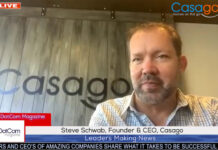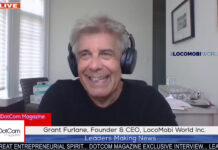As the digital ecosystem evolves, it’s crucial to understand how AI will change the social media marketing tools that businesses rely on for engagement, visibility, and brand growth. The intersection of artificial intelligence and marketing tech is not a distant possibility—it’s a present-day revolution. From automating content creation to refining targeting strategies, how AI will change the social media marketing tools will determine who leads and who lags behind in competitive markets. Whether you’re a startup or a Fortune 500 brand, embracing how AI will change the social media marketing tools is no longer optional—it’s a strategic imperative.
1. AI Will Revolutionize Content Creation and Curation
One of the most significant transformations AI brings to social media marketing is the automation of content creation. Natural Language Generation (NLG) tools, powered by AI, can now produce high-quality, engaging social posts in seconds.
Whether it’s writing captions, summarizing blog content into tweetable lines, or creating personalized LinkedIn posts for specific audiences, AI removes the guesswork. Additionally, AI tools like feed algorithms and trend detectors curate content by analyzing user preferences, behaviors, and engagement metrics—helping marketers post content that resonates at the right time, on the right channel.
2. AI Will Supercharge Customer Segmentation and Personalization
AI enables hyper-personalization by segmenting audiences based on deep behavioral and psychographic data rather than just demographics. Traditional tools group users by age or location, but AI clusters them by interests, sentiments, browsing patterns, and even emotional responses.
For example, a fitness brand could create different campaigns for users who are health-conscious but inactive versus those who actively track their workouts daily. AI ensures that each group receives tailored content, offers, and messaging—boosting engagement and conversion rates dramatically.
3. AI Will Transform Social Listening and Sentiment Analysis
Understanding what your audience is saying about your brand—across languages, emojis, and slang—is critical. AI-powered social listening tools use Natural Language Processing (NLP) to track brand mentions, competitor performance, and overall sentiment in real time.
These tools do more than count likes or retweets—they interpret the context and emotional tone of conversations. If your brand is mentioned negatively during a product rollout, AI can alert your team immediately, offering suggestions for real-time response or content adjustments. This helps companies stay proactive rather than reactive.
4. AI Will Enable Smarter Scheduling and Timing Strategies
Posting content at the right time can significantly boost visibility and engagement. AI tools analyze historical performance data, user activity patterns, and even global time zones to recommend or automate the optimal time to post.
Instead of relying on gut feeling or default timing templates, marketers can let AI tailor publishing schedules per platform, audience segment, and campaign type. This precision increases reach without needing to boost posts, saving time and budget.
5. AI Will Drive Dynamic Ad Targeting and Optimization
Paid advertising on platforms like Facebook, Instagram, LinkedIn, and TikTok has become more competitive—and expensive. AI significantly enhances ad performance by analyzing massive datasets to optimize targeting, bidding, creative testing, and audience matching.
Instead of creating static ad sets, AI allows for dynamic ad generation that adapts visuals, headlines, and CTAs based on the user’s profile, behavior, and interaction history. It also enables predictive modeling to forecast which users are most likely to convert, allowing smarter allocation of ad spend.
6. AI Will Make Influencer Marketing Smarter and More Scalable
Influencer marketing is no longer about follower counts—it’s about influence, authenticity, and alignment. AI tools assess influencers’ content quality, engagement authenticity, audience demographics, and historical campaign success.
Brands can use AI to find the most effective micro or macro influencers, predict ROI, and even forecast potential risks like fake followers or controversial content. AI-generated contracts, performance tracking dashboards, and sentiment monitoring tools make influencer campaigns more accountable and data-driven.
7. AI Will Enable Real-Time Chatbots for Social Customer Service
Consumers expect instant responses on social platforms. AI-powered chatbots integrated into platforms like Facebook Messenger, Instagram DMs, or Twitter can handle queries 24/7—answering FAQs, resolving complaints, and even completing transactions.
These chatbots use NLP to understand context and respond conversationally. Some advanced bots can even escalate complex issues to human agents seamlessly. By automating support while preserving brand voice, AI ensures better customer satisfaction and operational efficiency.
8. AI Will Improve Visual Content Recognition and Optimization
Images and videos dominate social media, and AI is making them smarter. AI-driven visual recognition tools can analyze your image/video content to identify themes, logos, objects, and even emotions. This analysis can be used to recommend hashtags, improve accessibility (e.g., auto-generating alt text), or evaluate brand consistency.
Moreover, AI can assess which visual styles or color schemes drive higher engagement, helping marketers fine-tune creatives for specific audiences. AI doesn’t just generate visual content—it understands what visuals work best.
9. AI Will Revolutionize Performance Analytics and Forecasting
Understanding campaign performance is vital, but traditional analytics often lag behind. AI tools provide real-time dashboards with predictive insights, suggesting what to tweak before a campaign underperforms.
For example, if AI notices a drop in click-through rates on a promoted post, it might recommend a better headline or CTA, even suggesting alternatives drawn from A/B test databases. Predictive analytics also helps in planning future campaigns based on historical data and real-time market shifts.
10. AI Will Strengthen Compliance and Brand Safety
Social media marketing isn’t without risks—compliance violations, copyright issues, and brand misalignment can all lead to reputational damage. AI can monitor published content, comments, and engagement threads for harmful or non-compliant language.
Tools powered by AI can also ensure that branded content adheres to platform guidelines and company policies. For industries like finance or healthcare, AI helps monitor and flag regulatory compliance issues before they go public—saving time, money, and reputational cost.
Conclusion
Understanding how AI will change the social media marketing tools isn’t just an exercise in tech curiosity—it’s a necessary step in future-proofing your marketing strategy. From content automation and campaign optimization to intelligent analytics and customer engagement, how AI will change the social media marketing tools will shape which brands thrive and which ones get left behind. Whether you’re a solopreneur managing one Instagram account or an enterprise overseeing multi-platform strategies, being ahead of the curve on how AI will change the social media marketing tools is crucial.
As platforms evolve, so too must the tools and strategies we use. AI not only provides automation—it brings precision, personalization, and predictive power. The fusion of AI and social media marketing will usher in a new era where campaigns are smarter, audiences feel more understood, and brands operate with unprecedented efficiency and insight.
















